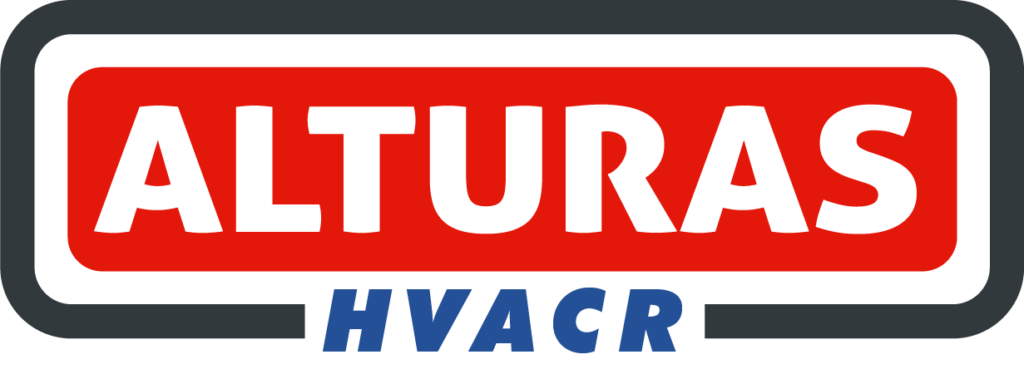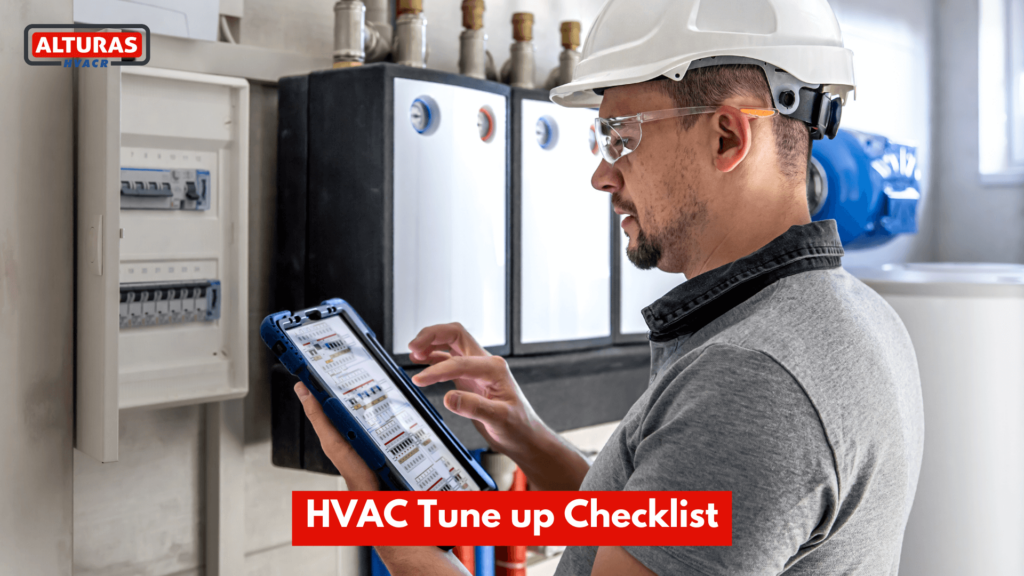A working air conditioning and heating system is very important for your home. Regular tune ups help keep it running well all year. This guide shows why tune-ups matter. It explains what a tune-up involves and when to schedule one. Keeping your air conditioning and heating system tuned up is essential.
HVAC tune ups help it work efficiently, saving you money on energy bills. They also extend the life of your system by catching small issues early before they become big, expensive problems. A tune-up checks many components to ensure proper operation. The technician inspects parts like filters, coils, fans, and refrigerant levels. They clean, lubricate, and adjust parts as needed. After the tune-up, your system will operate at peak performance.
HVAC Tune Up Checklist
A good HVAC tune-up can help your HVAC system last longer, work better, and save you money on repairs. Here’s a checklist to make sure your HVAC is in great shape: Check the air filters and replace dirty ones. Clean the coils, blower assembly, condensate drain, and evaporator drain pan if needed. Inspect the thermostat and make sure it’s working right. Look for any leaks or damage in the ductwork and connections. Test the refrig
1. Thermostat Calibration
You must check that your machine that controls the temperature stays working right. This helps keep the rooms feeling good. It also helps save energy and money.
2. Air Filter Replacement
Change your air filters to breathe fresh air and prevent harm to your HVAC system. Dirty filters mean poor air quality inside rooms. Your HVAC also has to work harder with bad filters. So change filters regularly for health.
3. Inspection of Electrical Connections
Go over all the electrical wires and connections. Make sure they are tight and safe to use.
4. Lubrication of Moving Parts
Put some oil on every part that moves. This stops too much friction. It also helps your HVAC last longer.
5. Condensate Drain Cleaning
Clean out the drain where water collects. This stops water damage and mold growth.
6. Inspection of Refrigerant Levels
Look at how much refrigerant is in your system. Add more if needed. This helps your AC cool better.
7. Cleaning of Evaporator and Condenser Coils
Clean the evaporator and condenser coils very well. This improves airflow and makes your system work right.
8. Blower Components Check
Look at and clean the blower parts. Make sure air can move freely and the system works right.
9. Belts and Pulleys Adjustment
Check that the belts and pulleys are good. Tighten them if needed so they line up correctly.
10. Controls Testing
Test the system controls. Make sure they work properly and use energy efficiently.
11. Ductwork Inspection
Look at the ductwork for any leaks, damage, or blocks. The air needs to flow smoothly.
12. Safety Controls Check
Test the safety controls and shut-off switches. They should work correctly to keep you safe.
13. Measurement of Voltage and Current
Measure voltage and current on motors to ensure they are operating within specifications.
14. Cleaning of Outdoor Unit
Remove debris and vegetation from the outdoor unit to ensure proper airflow and system efficiency.
15. Final System Performance Test
Conduct a final system performance test to ensure all components are functioning correctly.
Importance of HVAC Tune-Ups
Routine HVAC tune-ups are essential for several reasons:
Better Use of Power
Maintaining your heating and cooling system regularly helps it work well. This uses less energy so your utility bills get lower.
System Lasts Longer
Proper upkeep can make your heating and cooling system live much longer. You save money by not replacing it too soon.
Cleaner Indoor Air
Changing filters often and cleaning the system improves air quality indoors. This reduces allergens and pollutants inside your home.
What Does an HVAC Tune-Up Consist Of?
A tune-up helps your heating and cooling system work better. During the tune-up, a professional checks, cleans and adjusts key parts. This process includes:
Checking the System
The technician looks closely at all parts of your system. They look for any problems or areas that need attention.
Cleaning Important Components
Key parts like air filters, coils, and ducts get cleaned. This helps the system work efficiently and perform well.
Testing the System
Controls, safety switches, and performance are tested. The technician makes sure everything works correctly and safely.
When to Get an HVAC Tune-Up?
Do you need to get your heating and air conditioning system checked? Experts recommend getting a tune-up at least once a year, before summer or winter starts. But you might need extra tune-ups if you notice certain signs.
Higher Energy Bills
If your utility bills suddenly go way up, it could mean your HVAC system isn’t working properly. A tune-up might help fix the issue.
Also Read: Energy Saving Tips for HVAC Systems
Uneven Temperatures
Sometimes rooms can be too hot or too cold. This uneven heating or cooling means there’s likely a problem that needs fixing.
Strange Sounds or Smells
Weird noises or odors coming from your HVAC system usually indicate mechanical issues. A professional should take a look.
How Much Does an AC Tune-Up Cost?
An air conditioner tune-up cost can change based on different things. Like the size of your AC, how complicated it is, how much work needs to be done, and where you live. Most times, a regular AC tune-up costs between $75 and $200. But getting your AC checked regularly can save you money later on. It stops bigger problems that cost more to fix. It also helps your AC last longer.
Conclusion
It is important to check your heating, cooling, and air systems often. Our checklist helps keep these systems working well. Regular checks help your systems last longer. They work better. They save you money. Don’t wait until you have issues. Get your systems checked now. It keeps them running smoothly. You’ll feel comfortable indoors. Your systems will run efficiently.

